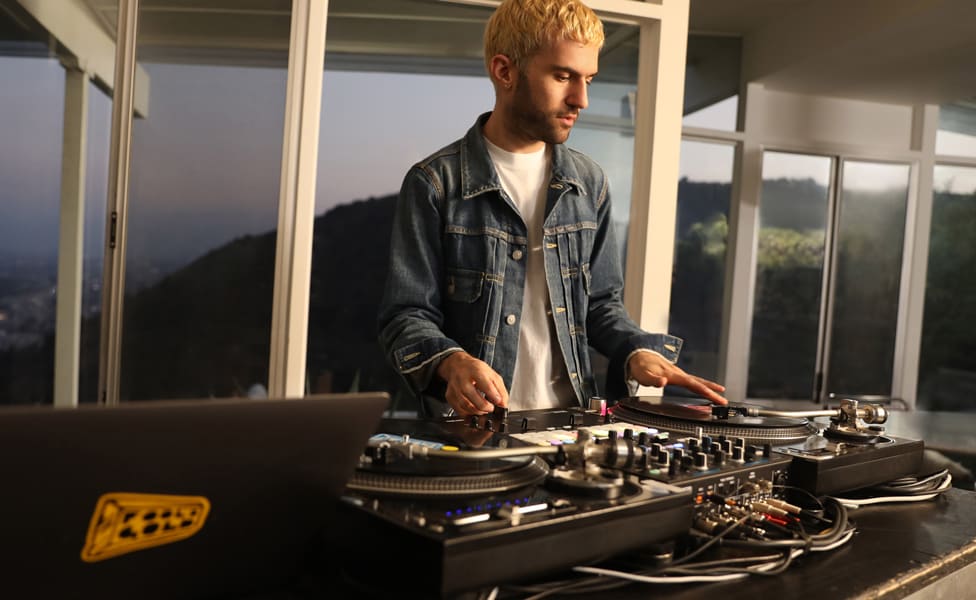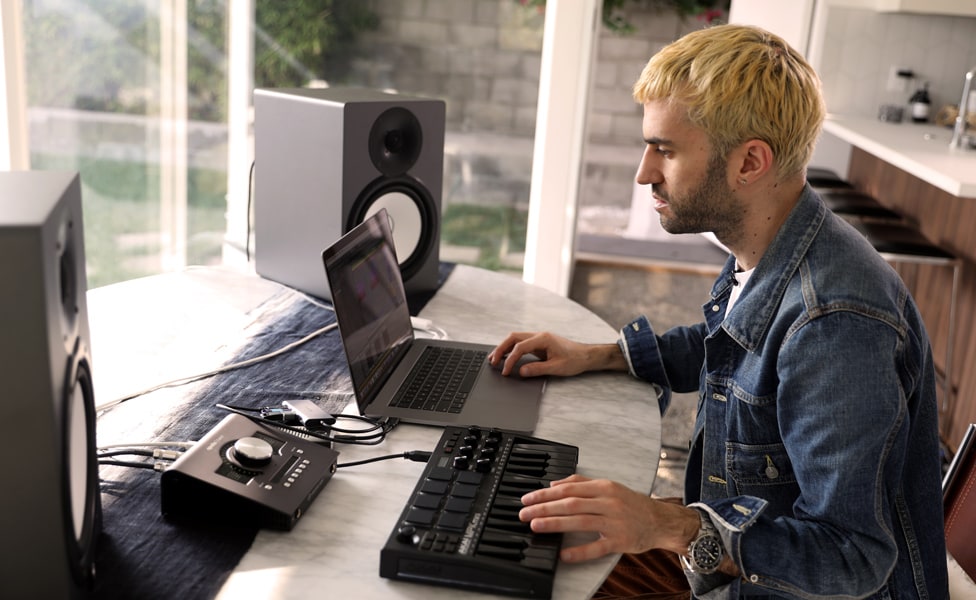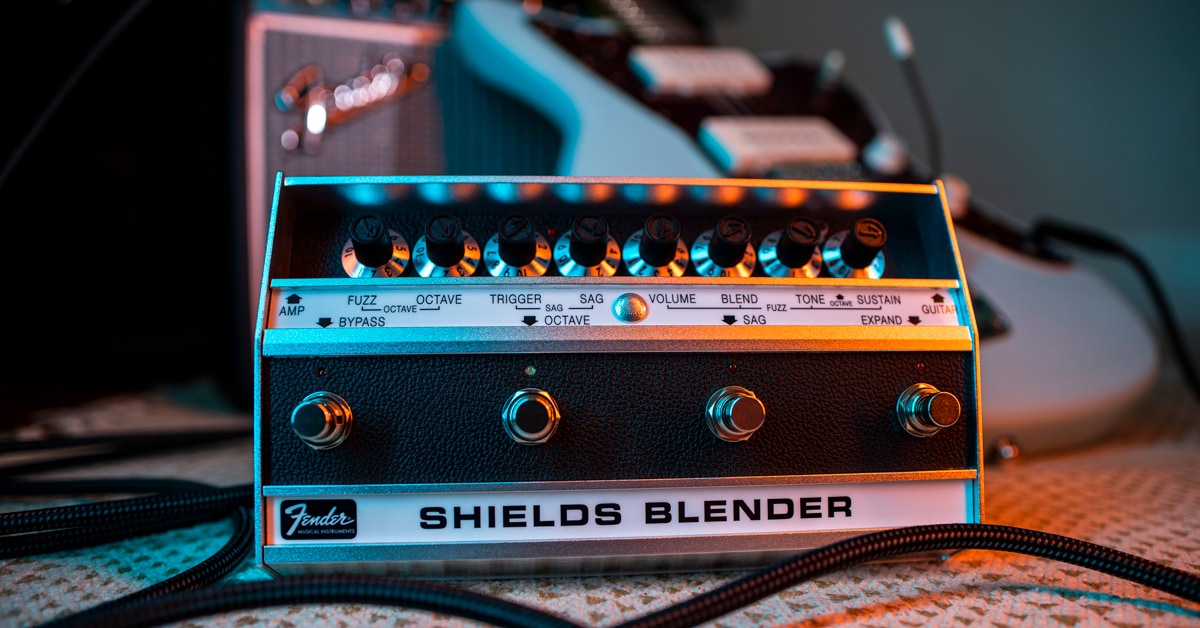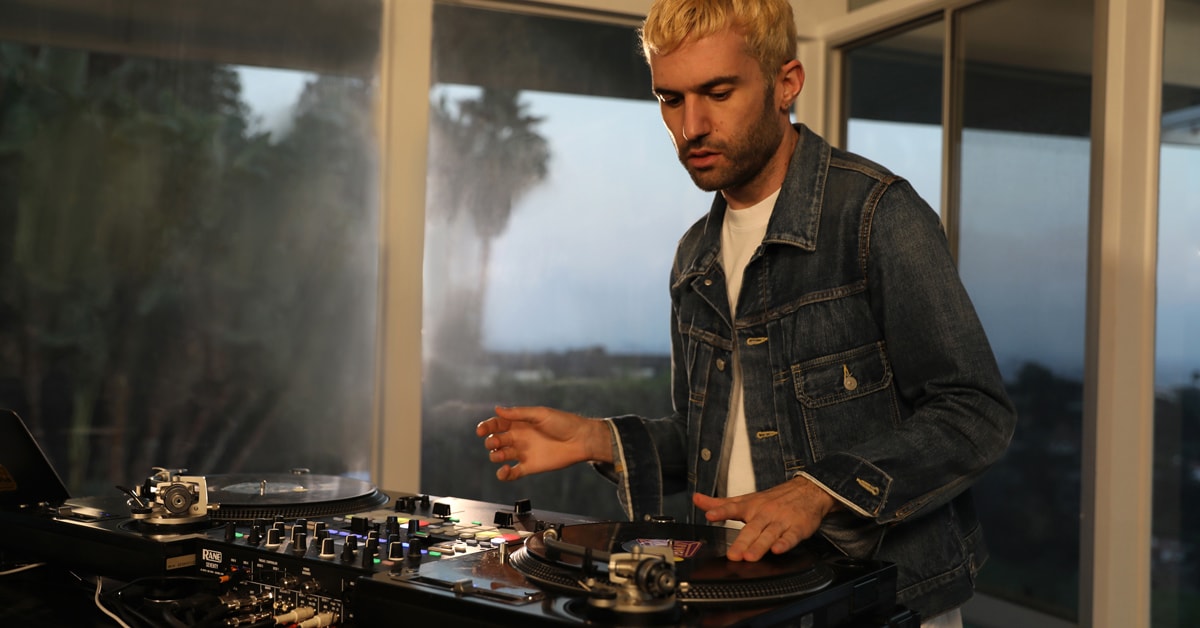From scratch prodigy to touring DJ to Grammy-nominated producer, A-Trak has already put together a stunning body of work—and he’s just getting started. Before he played festival sets and headlined stages all over the world, Alain Macklovitch, aka A-Trak, was just a kid messing with his dad’s record player, trying to mimic The Beastie Boys. His love of music and boundless curiosity led him into the competitive DJ circuit, where he won competitions all over the world at a young age. A-Trak quickly turned that prominence into mainstream success, first touring with Kanye West, then handling the scratches on “Gold Digger,” and eventually heading off to make his own music, produce hit songs and start his own record label, Fool’s Gold.
We talked to A-Trak about his humble beginnings, rapid early rise and thriving career, digging into the inspiration that keeps him making music.

What inspired you to start making music?
My connection to music comes from a love of DJing itself at a pretty young age. There's two things that really touched me. One was a cultural context through a lens of hip-hop. That included finding the older music that was sampled, and street culture—it gave me a sense of belonging. There are certain styles of music, whether it be hip-hop or punk and hardcore, that have a DIY aesthetic that ties to communities, to scene building and nurturing, and even honor. There's a certain way to do things that's dope, and there's another way to do things that's wack.
The other thing was the geekier side—figuring out gadgets, decrypting the language. I got into scratching at a time when there weren't tutorials for it. I would listen to records and figure out how this DJ made a rhythmic sound out of moving a record and playing with a crossfader. It was literally breaking a code. That spoke to the nerd in me, because it was so scientific. You had to subvert pieces of equipment, and hijack turntables in a way that they weren’t designed to be used. What kind of needle is not going to skip? What's the best kind of crossfader? Where do I buy the record that has these sound effects?
I make music because it ties to communities, to scene building and nurturing, and even honor. There's a certain way to do things that's dope, and there's another way to do things that's wack.
Tell us a little more about that process. How did you discover scratching?
In the beginning, I was messing up my dad's stereo. I think that's how most people start. My dad's record player had a belt drive. The turntables that we use for scratching are direct drive, with a strong magnetic rotor that pushes through when you're scratching the record back and forth. And then when you release the record, it plays. A belt drive turntable has a weaker motor, so when you start to scratch, the whole platter is slowing down, and then you let the record go, and it makes noises as it speeds back up. I was trying to scratch on this kind of turntable, and it sounded messy, but I stuck to it. Also, half of what you're using when you're scratching is the mixer or the crossfader, cutting the sound in and out. My dad just had his turntable plugged into a stereo receiver, so there wasn't a mixer, but I found one switch that was cutting the sound on and off. I used that switch in lieu of a crossfader. And then I saved up a little bit of money and started buying secondhand equipment.
How did you go about building your first DJ setup?
At first, I got a Technics 1200, which is the standard turntable for scratching and hip-hop, and a Gemini Scratch Master mixer. My second turntable was still my dad's record player. And then I don't know how long, six months later, I saved up more money and replaced that one with another secondhand Technics 1200. I still have that pair in storage. Those turntables, they work forever. Through the years, a lot of what's changed has been the mixer, the needles. I use the Rane SEVENTY mixer, and I play with Serato on the laptop. The records have a time code that controls the music on the laptop, so I'm still able to use the turntables for the same tactile experience.
What artists inspired you early on?
A lot of the records that got me into scratching were produced by DJ Premier and Pete Rock. There's a KRS-One album called Return of the Boom Bap, where DJ Premier was scratching a lot. The intro was a song called "KRS-One Attacks," and that's all his scratches. That was a huge influence to me. Pete Rock & CL Smooth, they had an album called The Main Ingredient. I was also listening to The Pharcyde. I was listening to a lot of De La Soul. And before all that, The Beastie Boys. The Beastie Boys were kind of my entry point into hip-hop. So just listening to "So What'cha Want" and being like, what's that sound? How do they make that? And then trying to figure it out.
Tell us about those early DMC battles. What did you learn from them? How did they help you get established as a DJ?
I won a couple of these big world championships, the first one being the DMC World Championships in 1997, where I won the Canadian finals. And they sent me to Italy to participate in the world finals. And when I won that, that put my name on the map. I eventually won more titles and broke a couple records of how many titles anybody had in a certain amount of time or whatever. My career comes from having paid my dues in the toughest realm of DJing and cementing a reputation there. There's a discipline that came with that … the amount of practice that it took. Learning how to deal with my own nerves performing in front of an audience, where I have one chance to do something I've been rehearsing for six months. It's like being an Olympic athlete. You learn a certain type of concentration, and you learn how to block out certain things and just get into the zone. Over time, I learned how to play festivals and clubs, and rock different kinds of parties and different genres, but I learned the kung fu when I was doing those battles at a young age.
You mentioned how, in the early years, you were attracted to the "nerd" element of tinkering and figuring things out. Has that carried over to the present?
That sent me down a path that I'm still following now. I still have the itch to figure out more tricks, and if they're not out there, to try to invent them. That hunt for new magic, new acrobatics, is still going. Beyond just scratching, I've been on a mission to figure out what else could be done, you know? Sometimes, a new piece of equipment opens up new ideas. Sometimes, it's exploring different genres. It could be contracting or extending the set. It's this never-ending mindset of experimenting.
I remember going to ballet and coming home and thinking, I wonder how I could elicit emotions and play with the arc of a performance in a similar way with a DJ set, you know? Sometimes I'll have a completely different experience outside of music and think, well, this thing had my captive attention for two, three hours. I wasn't checking my phone the whole time. I was transfixed. How can I do that with DJing?
The effect on the audience, that's a big part of it for you?
We've all seen how music brings people together. When you're at a concert, the people in the audience might disagree on a lot of things, but they're all experiencing the same vibrations. Literally vibes. Frequencies. Those movements of harmonics and rhythm and lyrics, the way they can assemble people and soothe them, calm them, elevate them or make them feel like jumping. It's beautiful.
What spawned your move from DJing into producing your own music as well? What was the spark?
My entry point into production was remixes. So, the way that I approach my original production, I treat songs like a remix. When you do a remix, they send you all the stems of a song. You keep the vocal and maybe repurpose some of the musical elements, and change the drums, the tempo. You take a vocal and change the production around it. So, that’s how I approach a lot of my original songs, too.
Another big part of getting into production was my brother, Dave. He was making beats at the same time that I was learning how to scratch. We were just, like, at two tables across from each other. I'd have my headphones on practicing scratching, and then he'd be over there chopping up drums and making beats. I picked up on the language of music production from observing him at that young age. Eventually, I wanted to try it, too.
At first, I was messing around with experimental scratch-based beats, where I would be scratching every instrument and layering stuff and creating beats out of that. Later on, I learned how to produce in a broader sense. I think a lot of DJs end up messing around with making beats, because we studied the music so much. You think about the music from so many angles that you're drawn to wanting to try stuff out.
Your brother Dave is half of the electro-funk duo Chromeo, and you've recently started collaborating with him under the name The Brothers Macklovitch. Tell us about how that came together.
For this project, my brother and I are going back to when we first started buying records as teenagers. We grew up in Montreal, and around the mid-’90s, we started going to record shops. My brother, at the time, was playing guitar in a band, a live band that was kind of like an acid jazz thing, sort of a wannabe Jamiroquai. And on the hip-hop side, we were listening to The Roots and A Tribe Called Quest and The Pharcyde … sort of a jazz influence in hip-hop as well. Montreal also had a lot of exposure to electronic music, so we were hearing sort of house-y records out of the UK. All that stuff influenced us. And then 20 or 25 years later, here we are now, and that's what we wanted to tap into for our project together. The fun part is figuring out how much is coming straight from those inspirations, and which of the elements we modernize.
The single "Give Love to Get Some" had a lot of lives. It took a lot of different forms through time. The DNA is the horns, the chord progression, the bass line. But when you have the DNA of a song or a skeleton, there's so many ways to dress it up. It ended up having a bit of a hybrid style to it, straddling that line between live and programmed. But to me, it's still generally a house song.

You mentioned you've been inspired by new pieces of gear. What's an example?
One of the most exciting things that's happened with my DJing in a long time is this Roland drum machine, the TR-8S. They just came out with the TR-6S also. Connecting that to my DJ setup with Serato and creating a beat, breaking it down, building it back up, breaking it down—that's the way electronic tracks are usually arranged. But to do that live with my turntables, where I can play with the volumes and filters with the TR-8S, where I can mute elements of the drums, play with the decay and release of certain elements. When you open the hi-hat or a snare, it lasts longer. It feels like your tension is actually releasing. That's been really fun to experiment with.
Any gear you've got your eye on? What do you want to try next?
A long time ago, I bought an E-mu SP-1200 sampler, which is this classic drum machine and sampler that was used both in hip-hop and house music, especially in the early and mid-’90s. There's one guy that repairs them, and I've been waiting to get this sampler repaired so I can experiment with that, because it has a lot of restrictions. You can only sample 11 seconds on it. I love how when you impose restrictions on yourself, you have to figure out a way to make it work.
You've already been at it for over 20 years now. Do you notice ways you've influenced newer artists?
Ever since I won that first DJ championship when I was a teenager, there's a video that's circulated. People used to buy the VHS tapes of that, and eventually someone put it on YouTube. There's a whole generation that saw that tape. For years, I would have people come up to me and say, "When I saw your video, that's what made me start DJing, because it made me believe I could do that, too." There was an element of that in my career where I started off very young, and I didn't look the part. Apparently, it helped people have the confidence to try it out for themselves.
Beyond that, I've always tried to champion skills and integrity with the art. That doesn't mean having to stick to the past, but there's still a level of integrity—not compromising, putting in the practice time, looking for innovation. Hopefully that influences people, too, and makes people want to strive for those things.
What's a quick bit of advice for a DJ just starting out?
When you're first starting out, it's important to take the time to really understand your equipment. Eventually, you're going to play live, and there are basic things to learn: How to beatmatch, how to not distort the sound, what the EQs are good for. A lot of the newer equipment gives you effects, and different bells and whistles. So, figure out how you can use that to make the mixes smoother to achieve certain goals. And then, if you want to learn the more technical stuff like what I do, scratching and everything, then it's a whole rabbit hole. It boils down to motor skills and hand-eye coordination, and just teaching your hands to do certain things on beat that sound right.
Beyond your own DJing and production, you also have a record label, Fool's Gold. What was your motivation for getting into that side of the music industry?
As part of digging and exploring, there's the mission of championing artists, finding records that a lot of people don't know, and saying, "Hey, this! You guys should check this stuff out." So, with Fool's Gold, the whole team and I, we're trying to find interesting music that doesn’t fit into boxes, and that could appeal to as many different audiences as possible in surprising ways. We like to build bridges between generations and scenes. Things that are eccentric but still enjoyable, you know?
Keep up with A-Trak on Instagram.
.jpeg)








